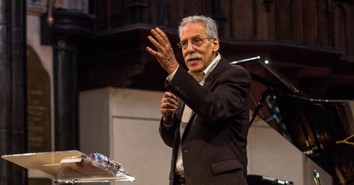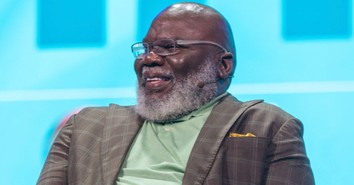Why Most Evangelicals See Social Media as Harmful but Still Use It

Most evangelicals view social media as more harmful than beneficial to the Christian faith, yet they continue to use it, according to a new survey. The Grey Matter Research/Infinity Concepts poll found that 58 percent of evangelicals believe social media is more harmful than helpful to the faith in the US, while 42 percent think just the opposite, seeing it as more helpful than harmful.
Only 4 percent of evangelical adults who are online say “they have not touched any social media in the past month,” a report about the survey said.
“If you believe something is harmful, do you still continue to do it?” the report asked. “When it comes to social media, for a majority of evangelical Protestants, the answer is yes.”
The survey found that 95 percent of evangelicals are online, and 96 percent of those who are on the Internet use social media at least once a month.
A solid majority of evangelicals, though, say social media has a more negative than positive impact on the faith.
“These believers are not just referencing material that lacks benefit for Christians, but for a wide variety of people,” the report said. “Most cite content that is unsafe, highly sexualized, full of hate and negativity, or harmful to impressionable youth, but 6 percent also complain that social media is worldly and lacks Christian content in general. As one person simply wrote, ‘Look at what’s posted.’”
Among evangelicals who believe social media is harmful, their reasons vary: it’s “loaded with dangerous/worldly content” (34 percent), it’s “bad in general, not just for faith” (29 percent), it can “negatively influence people regarding their faith” (15 percent), it includes “bad teaching and/or false doctrine” (14 percent), it’s “filled with lies, gossip, and misinformation about Christianity” (14 percent), and it includes “bullying/harassment/silencing directed at Christians” (11 percent).
Still, a significant percentage of evangelicals see social media as beneficial, with 47 percent citing evangelicalism as the top reason. Other reasons include: it offers “easy access to Christian content for those who are not reached in other ways” (18 percent), it “helps connect believers and build community” (16 percent), it “provides encouragement and helps build their faith” (11 percent), it “provides opportunities/resources for study and learning” (11 percent), and it’s “useful for Christian conversation and exchange of religious views” (9 percent).
For the study, an evangelical was defined as someone who affirms all four of the following statements: “the Bible is the highest authority for what I believe,” “it is important for me to encourage non-Christians to trust Jesus Christ as their Savior,” “Jesus Christ’s death on the cross is the only sacrifice that could remove the penalty of my sin,” and “only those who trust in Jesus Christ alone as their Savior receive God’s free gift of eternal salvation.”
Photo Credit: ©Dole/Unsplash
Michael Foust has covered the intersection of faith and news for 20 years. His stories have appeared in Baptist Press, Christianity Today, The Christian Post, the Leaf-Chronicle, the Toronto Star and the Knoxville News-Sentinel.
Listen to Michael's Podcast! He is the host of Crosswalk Talk, a podcast where he talks with Christian movie stars, musicians, directors, and more. Hear how famous Christian figures keep their faith a priority in Hollywood and discover the best Christian movies, books, television, and other entertainment. You can find Crosswalk Talk on LifeAudio.com, or subscribe on Apple or Spotify so you never miss an interview that will be sure to encourage your faith.
Originally published December 11, 2024.





